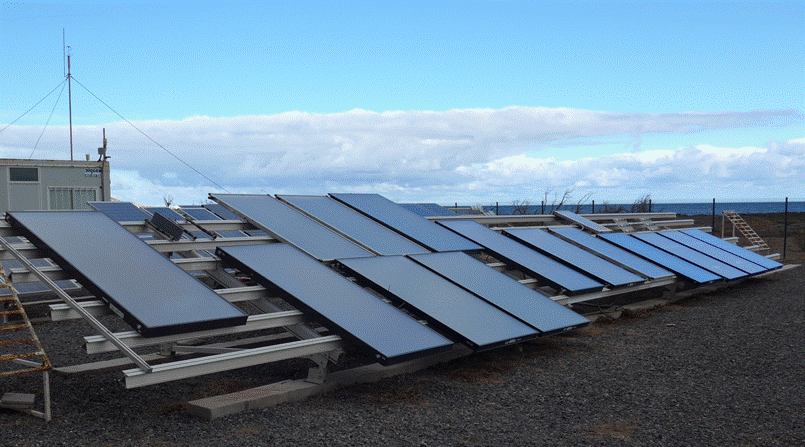| Duration: | August 2016 - July 2020 |
| Contracting Authority/ Sponsors: | German Federal Ministry of Economic Affairs and Energy (BMWi) |
| Project Partners: | Institute for Thermodynamics and Thermal Engineering ITW of University of Stuttgart, Industry consortium |
| Webseite: | www.speedcoll2.de |
| Projektfokus: |
SpeedColl 2 – Service Life Estimation for Solar-Thermal Collectors and Their Components
The reliability of solar thermal collectors is of major economic importance for suppliers, manufacturers and operators due to the requested long service life. At the same time, it is strongly influenced by the specific climate conditions at the usage location, making it difficult to estimate for the industry. The “SpeedColl2” project investigates the service life and sustainability of solar-thermal collectors, components, and materials for the use in different climates and export markets.
Based on the predecessor project “SpeedColl”(2011 – 2015), which exposed and investigated solar collectors and their components over a period of four years in arid, maritime, tropical, alpine, and moderate regions, “SpeedColl2” supplements this research with the targeted development of tests and models for estimating the service life.
The properties of installed materials and their interaction in and at the collector are investigated in more detail in collaboration with the Institute for Thermodynamics and Thermal Engineering ITW of University of Stuttgart and partners from the German solar thermal industry and suppliers. Among others, the efforts focus on the load combination sand-salt-humidity, the correlation between dust transport in the air and material removal, moisture transport through adhesive and sealing compounds, the interaction between abrasive and corrosive loads on surfaces, and the influence of the collector design on the flows occurring in the collector. These investigations establish the basis for the development of mathematic models for location-specific service life estimations. Beyond that, the sustainability of the tested products isassessed. Another key point is the ecological assessment of the products considering their specific service life. For this purpose, an assessment scheme is developed within the scope of the project that is adopted to solar thermal technology, to investigate the ecological footprint of different collector types and qualities.
